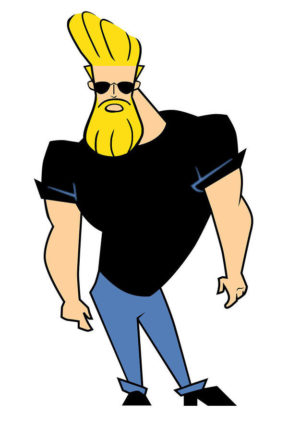I’ll admit, lately I have become a bit obsessed with my beard. Strangely, this unruly hair that is growing out of my face has captivated my attention, adding a minutes to my daily grooming schedule. For people that don’t know me that well this is a pretty big deal. It’s true, I am a clean person (I shower, brush teeth, use deodorant, etc.) but the extent of “grooming” myself has always been: 1) to slap some gel-like-substance into my hair, 2) mess it up to get that authentic bed head look happening, and 3) listen to my wife complain about my ability to look presentable. That was before, a pre-beard era of naive bliss. Now, I take my time in front of the mirror brushing, combing, balming and shaping these fruitful follicles. If anything, this is a therapeutic endeavour, one that prepares me mentally and emotionally for the day ahead.
So, like many great New Testament scholars before me, I have decided to find Biblical justification for my ongoing obsession. Through a painstaking process of a much preferred interpretive method, namely Isogesis, the following will bypass many historical church council decisions, theological and psychological insights, and any systematic or ethical explorations of the topic. Rather, I will go straight to the scripture, the source (if used correctly) of all kinds of ways to verify one’s own opinion.
Shave and Risk God’s Wrath
“You must not eat anything with the blood; you shall not practice divination, nor shall you interpret signs. You shall not round off the corner hair of your head, and you shall not trim the corner of your beard. And you shall not make a slash in your body for a dead person, nor shall you make on yourselves a tattoo’s mark; I am Yahweh.” Lev 19.26-28
Not only does God himself offer great advice for those dieters that desire to lose weight, he is also a style guru that wants his followers to look good. But his style advice doesn’t just set his people apart from the rest of the red carpet elite of the Ancient Near East, it shatters social conventions and preconceived notions of style and fashion. Forget Pharaoh’s Van Dyke or Nebuchadnezzar’s French fork, the divinely ordained Grizzly Adams in now the inspired standard for God’s people.
Grow Them Long or Face the Consequences
“Then Joab said to Amasa, “Is it peace, O you my brother?” Then the right hand of Joab took hold of the beard of Amasa as if to kiss him. Now Amasa was not on his guard against the sword that was in Joab’s hand, and he struck him with it into the stomach, and his entrails poured out to the ground. He did not strike him again, and he died.” 2 Sam 20.9-10
Let’s face it, Joab was a bad dude and not an individual to be taken lightly. He was known for his ability to get the job done when others were too squeamish. The most interesting thing about this narrative is not what the text actually says, but what is implied in the author’s words themselves. Interestingly, the name Amasa is derived from the Hebrew root amas which means “to carry an emotional burden.” With this background knowledge, it then becomes abundantly clear that the author of 2 Samuel had an intense desire for the reader to understand that Amasa represented an individual who was emotionally weighed down by some kind of character deficiency. This sense of inadequacy left our subject impotent in his ability to preform the tasks necessary for military leadership. This shortfall becomes extravagantly evident through Joab’s decisive action of grabbing Amasa’s beard and subsequently disemboweling the poor fellow. The fact that Joab could grab Asma’s beard and hold him close enough to stab him in the gut with a sword (a sword short enough to be hidden from sight) reveals the final piece of the puzzle, leading us to the actual meaning behind the text. This meaning, which is obvious to the person well-educated in Ancient Near East backgrounds, consists of an injunction against the cultivation of a short beard.
Oil it Up and Be Blessed
In conclusion, let us take a moment and meditate on the Psalm below which talks about how God looks favorably on the individual who keeps his beard long and well oiled.
“Look, how good and how pleasant it is when brothers dwell together in unity. It is like the fragrant oil upon the head, running down upon the beard, the beard of Aaron, that runs down upon the edges of his robes. It is like the dew of Hermon that runs down upon the mountains of Zion, because there Yahweh commanded the blessing— life forever.” Psalm 133
Like Aaron before us, who served as the first high priest of God, we should all do our part to encourage unity among our fellow humans. Scripture is clear, maintaining a healthy looking beard is essential to the cohesive survival of humankind. Honestly, when engaged in the admiration of another’s beard there is no time for hate, bigotry, or any other non-unifying activity. If we would all just grow beards, or, at the very least, take time to encourage others to do so, the world would be a better and, dare I say, more peaceful place.
Post a picture of your beard on Facebook and tag our site Two Cities page if you agree!





1 Comment
Leave your reply.